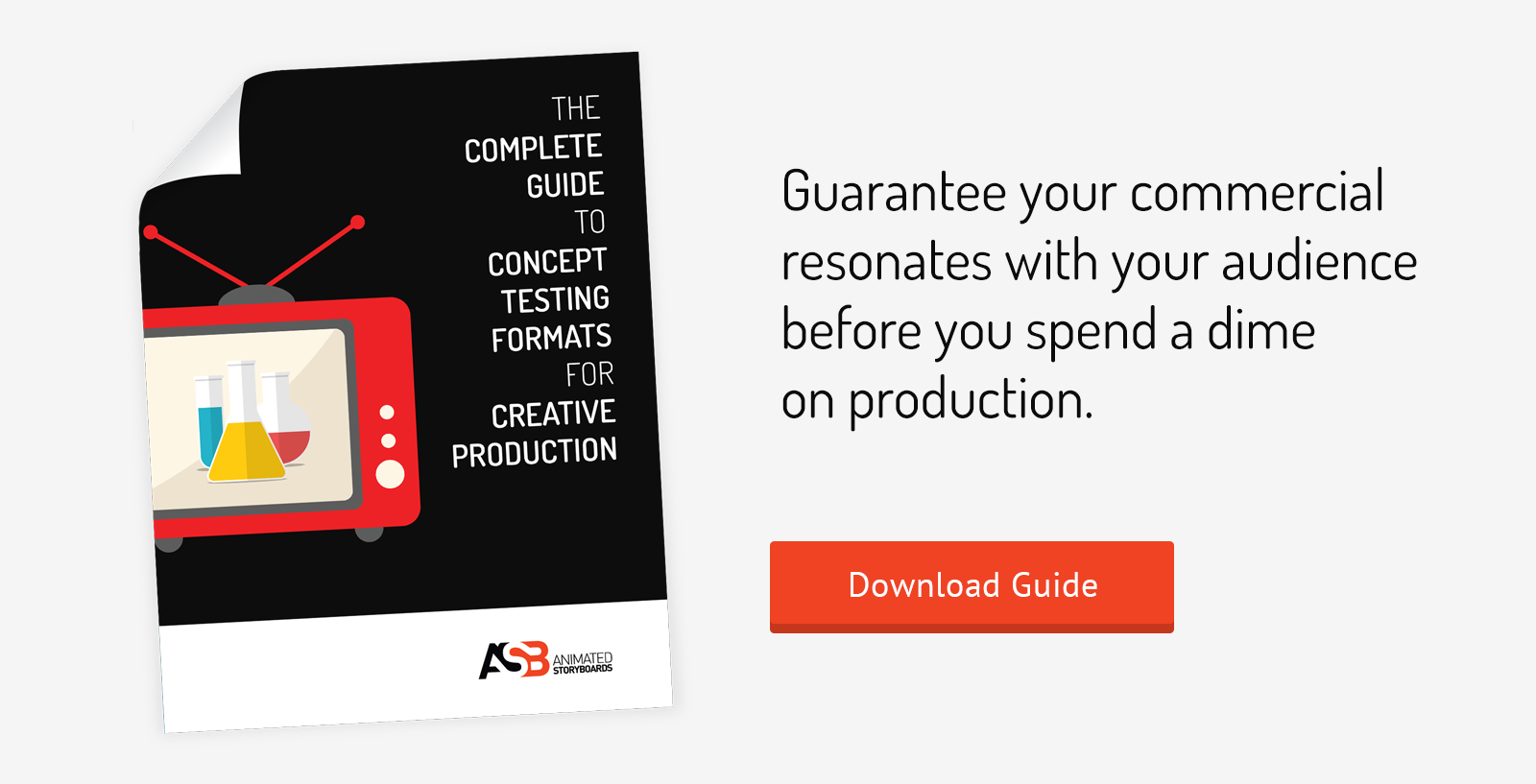 Whether you’re a seasoned agency producer with hundreds (or thousands) of shoots to your name or you’re a rookie looking to to improve your craft and searching for tips and tricks, sound advice is invaluable.
Whether you’re a seasoned agency producer with hundreds (or thousands) of shoots to your name or you’re a rookie looking to to improve your craft and searching for tips and tricks, sound advice is invaluable.
We reached out to experienced commercial producers from across the country to get their number one tip for success, and we ended up with several great responses about everything from planning, to execution, to leadership, to the paramount importance of creative. Here’s what they had to say (listed in alphabetical order by last name).
#1: “Always be prepared with a backup plan and a backup to the backup—because rarely does a production go as planned and without a hitch.”
Autumn Childress, Senior Producer
dailey
#2: “Maintain an open mind. Don’t do things just because that’s the way you always do them, or because it’s the process. Always ask yourself if there’s a better way. Don’t be afraid to ask questions, especially from those who have more experience. I’ve always been able to find a solution—even when it looked grim on first glance. Listen to all opinions, and then of course, form your own. Inspiration will often come when you least expect it.”
Antonietta Croft, Producer
Saatchi & Saatchi
#3: “Always be a step (or two) ahead. Being able to see not only what’s in front of you, but to be able to anticipate what’s coming and be prepared for it, is essential.”
Krissy Derossi, Producer
dailey
#4: “Building & maintaining actual relationships (vs. only reaching out when one needs something), and being there for the other is the key to success for me. As a producer, I am quite dependent—I don’t edit, I don’t shoot, I don’t direct, I don’t score, I don’t cast—so I am, in some ways, only as good as the people I surround myself with.”
Dennis Di Salvo, Senior Producer
M&C Saatchi
#5: “A piece of advice that stuck with me is ‘the most valuable partnerships are those based in favors.’ To be a successful producer, one of your strongest assets is your ability to create and manage lasting, responsible, and mutually beneficial partnerships. If you create a foundation of honesty and trust, then your partners know you will go above and beyond for them and vice versa. Create an opportunity for partners to genuinely care about the outcome as much as you do, and your venture will be successful.”
Whitney Ferris, Producer
BBDO San Fransisco
#6: “Have a strong point of view, and be prepared to back it with facts or opinions. Be an unapologetic leader within your niche, and be able to articulate your specialty with clarity. Work toward your future—do not work towards your pay rate. Don’t try to be David and take on Goliath; instead, build a team with whom you can share and experience your success with.”
Heather Grabin
AichG
#7: “Keeping a large team of diverse characters who are creatives, account management, project management, director/production crew, business affairs, and clients ‘in the loop’ and up to speed on all aspects of a commercial production is no easy task, but absolutely key to making all the moving parts work in concert.”
Kathy Kraft, Production Business Affairs Manager
AbelsonTaylor
#8: “The #1 rule for me in working on a commercial is that it is always about the work first. All other aspects evolve around that. I strive to take what is on paper (the script) and make it better. This is reflected in the budgeting as well; working to make the money reflected in what is seen on the screen. Go about this with passion and heart, inspire others and success will follow. And have fun!”
Harvey Lewis, Director/Supervising Producer
Rosetta
#9: “The #1 thing every broadcast producer should be good at is communication. Being able to assess the wants of the client, the creative team, and the production vendor and getting everyone on the same page is imperative. This doesn’t just mean getting the right people in the same room talking to each other. It also means listening and understanding the implications of that communication. If you can take what is given to you now and turn it into an actionable future, then you will be successful.”
Sara Martin, Associate Content Producer
Ogilvy | Chicago
#10: “Don’t get bogged down with process. The traditional agency/client model is dwindling as more partnerships are redefining structural roles and workflow. I often see producers struggling to deviate from their regimen, especially with more dynamic clients. My advice: Embrace change. Be dynamic and have an open mind. Use your past experience as a guide, but be prepared to learn.”
Diego de la Maza, Executive Film Producer
R/GA Content Studio
#11: “Here it is under 100 characters: Never compromise creative.”
Allen Perez, VP Creative Director of Production
Orci
#12: “Be able to articulate the creative vision. When faced with constraints, don’t de-scope; instead, re-scope and redefine the idea to maintain its strength. Do great work with great people and for great people. Care about the details.”
Matthew Polluck, Founder
Hearts&Minds LLC
#13: “It’s…
-
The ability to think ahead
-
To be considerate and thoughtful
-
To be knowledgeable about the pool of vendor talent and maintain contacts
-
To be able to communicate
-
To be able to balance the job of producer while maintaining the creative integrity of the project
-
To get along with others
-
To be strong without being arrogant
My old boss used to hate me and love me for being able to see the full picture so clearly, so quickly. Every action has a reaction. This is true in physics, and it’s true in production.”
Julie Salik, Director of Broadcast Production
PITCH
#14: “You can’t be afraid to give instructions and direct your cast and crew around. You need to be not just willing, but completely unafraid of being loud and in charge. There are hundreds of moving parts, and potentially dozens of people. There’s a lot that can go wrong, and if you’re not taking charge, the vision that so many people are working towards could be lost. Be fearless.”
#15: “My #1 tip is simple. NO WAITING. This rings so true. Every day. Every day. No waiting. Plan, react, plan, react, process, change, revise, mock-up, move, drive, walk, run, remove, talk, whisper, yell (sometimes), IM, email, ring, phone, do, move, go. Waiting isn’t natural. There is no real room for it. We don’t have time to wait and producers are not waiters. A former mentor of mine stressed immensely that if a situation is coming forth that smells of waiting, then counter it by planning. Take control. Take time that could be passive and set a course. You will be great because of your reaction and planning skills, not because a project went perfectly or formulaically. Others indeed dictate what happens, but you control the elements. Always. Oh, and please cultivate every relationship and opportunity out there, genuinely.”PITCH
Sloan Schroader, VP/Associate Director of Content Production
Crispin Porter + Bogusky
#16: “I would say the #1 tip for succeeding at my job would be to always be honest. It helps things move much smoother when you are honest to people. A no-bullshit policy should always be in effect. Unfortunately in our business it isn’t always the case. Other then that, just plan for the worst with a production, and it can only get better!”
Damon Vinyard, Integrated Producer
Deutsch
#17: “I like to share a quote from Henry Ford with my young producers: ‘Obstacles are those frightful things you see when you take your eyes off your goals.’ In production, we are always going to have obstacles in our way. They pop up more than pimples on a teenager. Keep your eye on the prize, and do whatever it takes to make great work.”
Tony Wallace, VP/Executive Producer
Leo Burnett/Chicago
Each of these experts offer advice and experience that any producer can benefit from. Be sure to follow them on Twitter or bookmark their websites for excellent advice when creating commercial productions.
Now it’s your turn—do you have any advice you’d like to share? Tweet at us and let us know. Your advice may appear in a future article.

